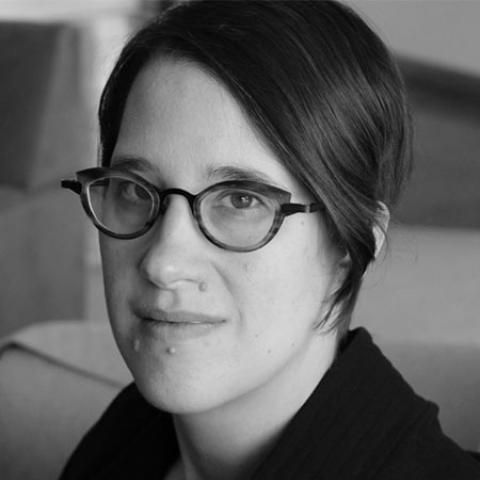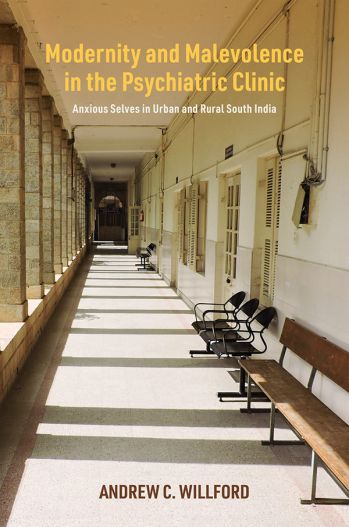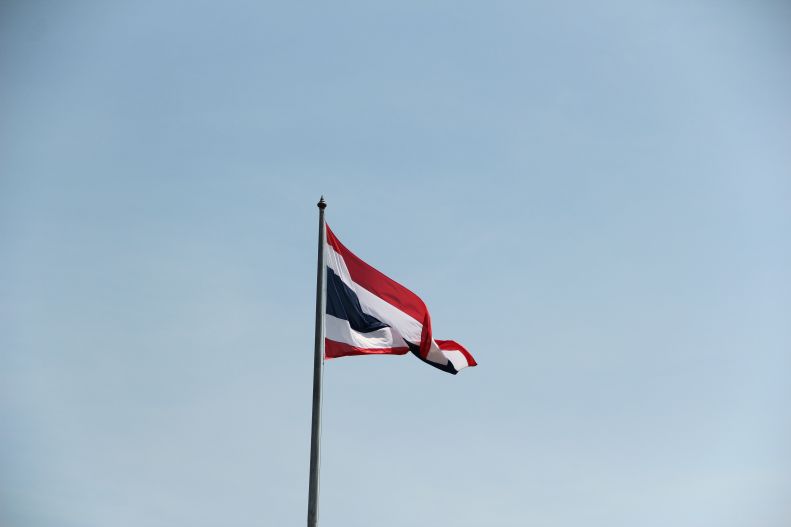Southeast Asia Program
Abby Cohn

Professor, Linguistics
Abby Cohn is a professor of linguistics and Southeast Asian studies. Her research interests include the Austronesian languages of Indonesia, with a particular focus on their phonetics, phonology, and morphology.
Additional Information
Andrea Bachner

Professor, Comparative Literature
Andrea Bachner is a professor of comparative literature. She was the director of the East Asia Program for the term 2019-22 and a member of the East Asia Program steering committee and the CEAS editorial board.
She holds an MA from Munich University, Germany, and a PhD from Harvard University. Her research explores comparative intersections between Sinophone, Latin American, and European cultural productions in dialogue with theories of interculturality, sexuality, and mediality.
Additional Information
Program
Role
- Faculty
- EAP Core Faculty
- SEAP Faculty Associate
Contact
Email: asb76@cornell.edu
Phone: 607-255-6795
Eric Tagliacozzo

Director, Southeast Asia Program
Eric Tagliacozzo is the John Stambaugh Professor of History at Cornell University. He is the director of the Einaudi Center's Southeast Asia Program, and a core faculty member of the Southeast Asia Program and South Asia Program.
His research centers on the history of people, ideas, and material in motion in and around Southeast Asia, especially in the late colonial age.
Geographic Research Area: Southeast Asia, South Asia
Teaching/Research Interests: Migration and trade, material history, Silk Road, Indian Ocean
Additional Information
Program
Role
- Faculty
- SAP Core Faculty
- SEAP Core Faculty
- SEAP Director
- Einaudi Faculty Leadership
- Executive Committee
Contact
Email: et54@cornell.edu
Book Explores "Modernity and Malevolence" in Indian Clinical Care

Andrew Willford, SAP/SEAP
Andrew Willford (SAP/SEAP) discusses his new book, Modernity and Malevolence in the Psychiatric Clinic: Anxious Selves in Urban and Rural South India.
Additional Information
Ahead of Trump Call, Fighting Between Thailand and Cambodia Intensifies

Tom Pepinsky, SEAP
Thomas Pepinsky, a Cornell University politics professor, provides expert analysis on Trump's likely engagement in resolving the Thailand-Cambodia conflict.
Additional Information
Thai Leader’s Hard Line on Cambodia Clash Risks Irking Trump

Tom Pepinsky, SEAP
Tom Pepinsky, professor of government, notes that Cambodia’s West Point–trained prime minister has strong incentives to respond forcefully to any perceived threats to national sovereignty.
Additional Information
SEAP Summer Language Fellowship

Details
SEAP offers funding for graduate students to intensively study a Southeast Asian language during the summer.
All applicants are required to also apply for the Graduate School Summer Foreign Language Grant due April 15, which provides up to $1,000 in international travel support.
Amount
For summer language study at any level: Tuition and fees allowance of up to $5,000, paid directly to the institution offering the language program.
Eligibility
Applicants must be PhD or master's students affiliated with SEAP.
How to Apply
In your application, you will be asked to provide information on your proposed study location. You must identify your own preferred program. Please indicate the language level you intend to study during the award period.
Your program must be at least six weeks in duration and offer at least 120 student contact hours. Pre-assessment and post-assessment tests are required.
We strongly encourage applicants to contact the appropriate Cornell Southeast Asian Language Senior Lecturer to discuss individual language learning goals and explore potential intensive language programs.
Questions?
Please direct any questions to SEAP Program Manager Colin Peterson (crp88@cornell.edu).
Additional Information
Information Session: Laidlaw Scholars Leadership & Research Program

January 6, 2026
11:00 am
The Laidlaw Scholars Leadership and Research Program promotes ethical leadership and international research around the world—starting with the passionate leaders and learners found on campuses like Cornell. Open to first- and second-year students, the two-year Laidlaw program provides generous support to carry out internationally focused research, develop leadership skills, engage with community projects overseas, and become part of a global network of like-minded scholars from twenty universities worldwide.
At this session, we'll share more information about the program, including independent international projects with the Einaudi Center’s trusted partners around the world for the summer 2026 leadership-in-action portion of the program, and tips for writing a successful application. Applications are due January 12, 2026.
Register here. Can’t attend? Contact programs@einaudi.cornell.edu.
Additional Information
Program
Einaudi Center for International Studies
Reppy Institute for Peace and Conflict Studies
East Asia Program
Southeast Asia Program
Latin American and Caribbean Studies
Institute for African Development
Institute for European Studies
South Asia Program
Southwest Asia and North Africa Program
Information Session: Laidlaw Scholars Leadership & Research Program

December 16, 2025
2:00 pm
The Laidlaw Scholars Leadership and Research Program promotes ethical leadership and international research around the world—starting with the passionate leaders and learners found on campuses like Cornell. Open to first- and second-year students, the two-year Laidlaw program provides generous support to carry out internationally focused research, develop leadership skills, engage with community projects overseas, and become part of a global network of like-minded scholars from twenty universities worldwide.
At this session, we'll share more information about the program, including independent international projects with the Einaudi Center’s trusted partners around the world for the summer 2026 leadership-in-action portion of the program, and tips for writing a successful application. Applications are due January 12, 2026.
Register here. Can’t attend? Contact programs@einaudi.cornell.edu.
Additional Information
Program
Einaudi Center for International Studies
Reppy Institute for Peace and Conflict Studies
East Asia Program
Southeast Asia Program
Latin American and Caribbean Studies
Institute for African Development
Institute for European Studies
South Asia Program
Southwest Asia and North Africa Program
Allure and Ambivalence: The Indian Aesthetic in Contemporary Thai Religious Worlds

February 9, 2026
12:15 pm
Uris Hall, G08
Talk by Aditya Bhattacharjee (Asian Studies, Cornell University)
The cultural affinities that have long connected South and Southeast Asia are particularly visible in Thailand, one of the first countries to recognize India after independence and a nation that occupies a prominent place both in India’s cultural diplomacy efforts and in the itineraries of internationally bound Indian tourists. My talk turns from these well-known forms of state-level and civilizational interaction to the popular and everyday textures of lived, religious worldmaking in which ordinary Thais encounter and make sense of Indian-ness. Drawing on longstanding ethnographic fieldwork that moves fluidly between temples, social media platforms, and unplanned interactions on city streets, I consider how Thai Buddhists in varied settings engage Indian-ness less as a living South Asian tradition than as an aesthetic vocabulary that can be refracted and reinterpreted through a Buddhist grammar of their own.
In practice, this refractive process produces visual and ritual fields in which Indian themes appear in unexpected combinations and take on meanings shaped by local contexts. In these settings, Indian motifs are woven into wider Asian assemblages that combine Buddhist imagery, Chinese prosperity figures, and local protective spirits. Taken together, the talk’s case studies illuminate a distinct Thai Hindu modality whose allure and ambivalence, as perceived by both participants and observers, invite a reconsideration of how Indian-ness travels, settles, and is remade across Asia. In doing so, the talk reframes notions of a global Hinduism through an intra-Asian lens that decenters India as the singular vehicle of religious innovation within its study.
Aditya Bhattacharjee is a Mellon Postdoctoral Fellow jointly appointed in the Department of Asian Studies and the Society for the Humanities at Cornell University. His research examines how Hindu identities and ritual practices take shape across diverse cultural worlds, from urban Thailand to diasporic communities in North America. He is currently developing his first book, Global Ganesh: Mapping a Divine Diaspora, based on his dissertation at the University of Pennsylvania. The project traces how Thai Buddhist laypeople and monastics engage Indian deities such as Ganesha, Shiva, Vishnu, and various Hindu goddesses in suburban Bangkok and in the American Northeast, using these cases to reconsider how borrowing and appropriation are defined within interreligious encounters. Bringing together insights from material and visual culture, diaspora studies, and theories of ritual creativity, the book challenges India-centered models of Hindu mobility and offers globally informed perspectives on religious circulation in Asia. Before coming to Cornell, Bhattacharjee taught at the Rhode Island School of Design, where he developed interdisciplinary courses on Asian philosophy, diaspora, and religious art.
Additional Information
Program
Einaudi Center for International Studies
South Asia Program
Southeast Asia Program
